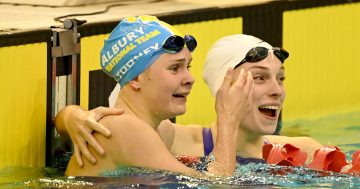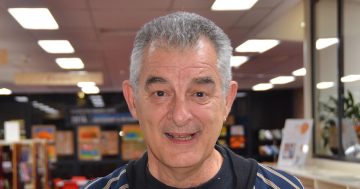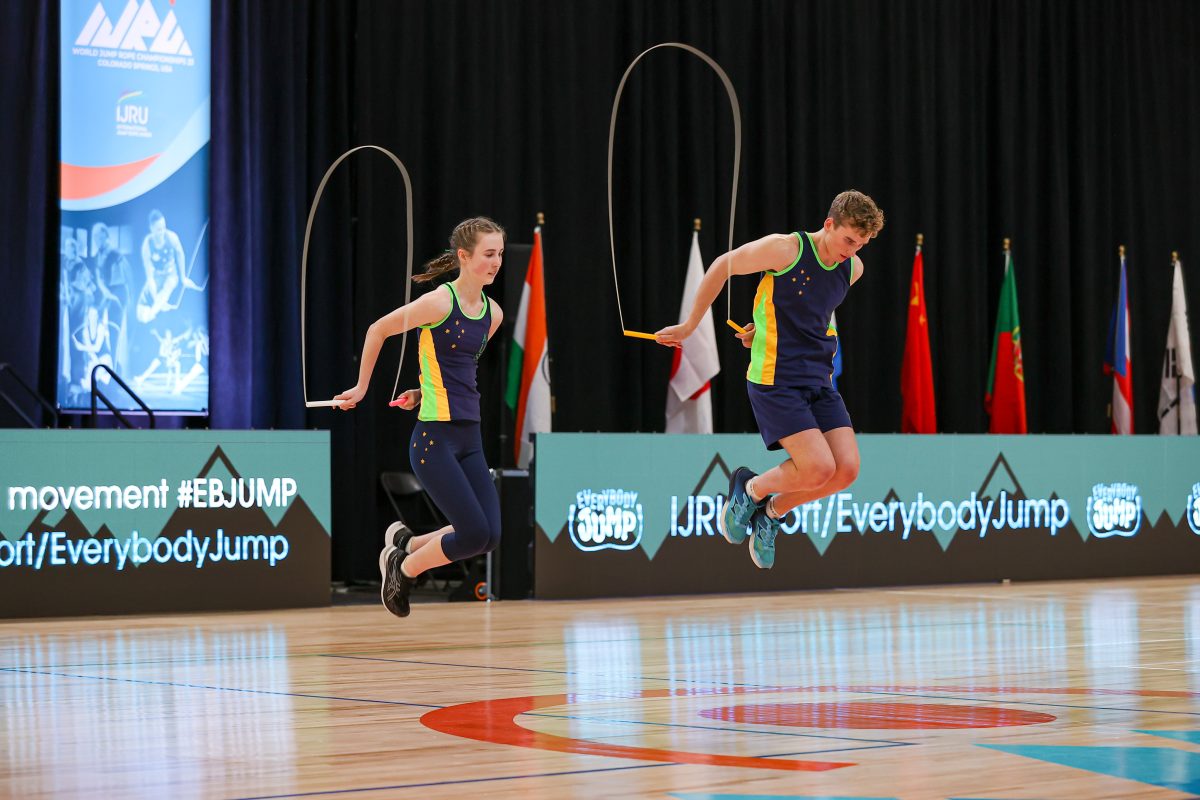
The Riverina’s own champion skipper Tom Norman brought home two medals from the recent International Jump Rope Union World Championship, including a gold which he shared with his sister Rebekah. Photo: Supplied.
When thinking about sports that are good for cardiovascular health, people don’t always think of skipping.
But world champion skipper, Tom Norman and his family are doing their best to change that with their sights set on representing Australia as the sport pushes for Olympic consideration.
Tom travelled to Colorado Springs in July and represented Skipping Australia at the International Jump Rope Union World Champions, where he and his team won gold in the Double Dutch Freestyle Open competition with his sister Rebekah while also being a part of the team that won bronze in the 4×30-second Speed Relay.
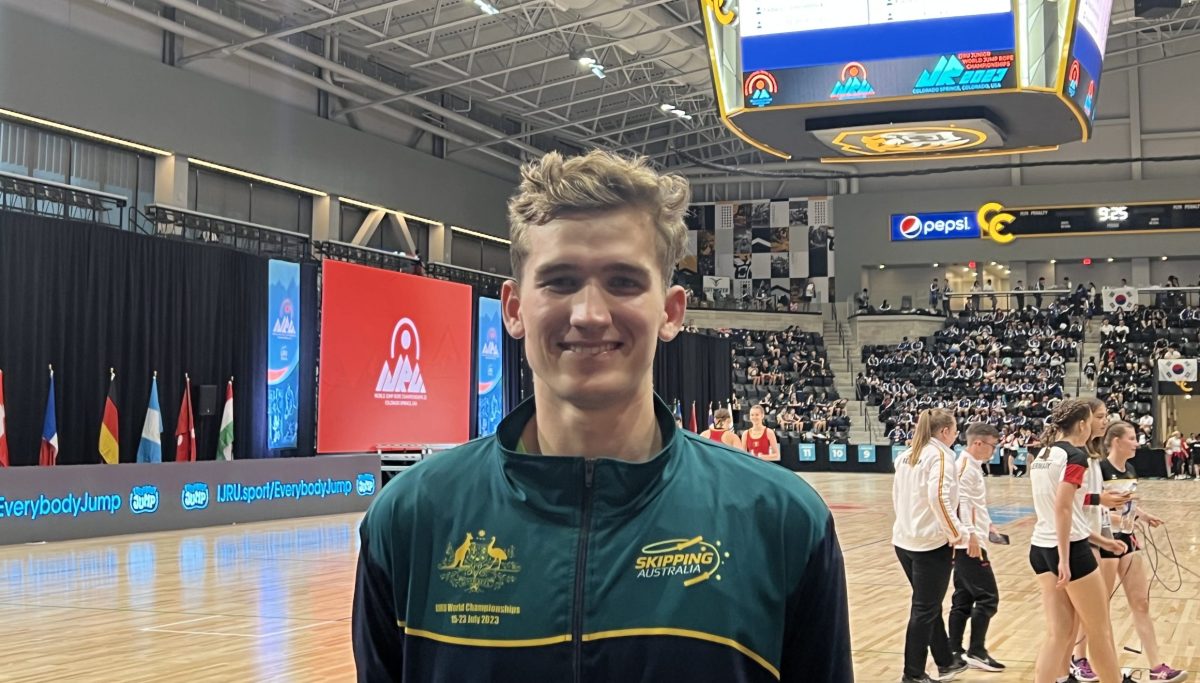
Tom has competed at five world championships since 2010 and travelled more than 50,000 km to compete in that time. Photo: Supplied.
“I started skipping in 2010 when I tried out for my school’s Jump Rope for Heart team in St George,” Tom said.
“Unfortunately, I didn’t get into the team at the time; I was a bit uncoordinated but I kept working at it and kept trying and really got into the sport.
“I joined a development team and continued training and growing my skills until 2011 when I tried out for the team again and got in.”
Since joining his school team, Tom has been to five world championships and competed in Hong Kong, Sweden, Shanghai and most recently the United States.
For his most recent tournament in Colorado Springs, Tom went through several weeks of intense physical training, including how to breathe at high altitudes.
“Colorado Springs sits at about 2000 metres above sea level,” Tom said.
“We had to learn how to control our breathing at high altitudes; we set up this chamber that gets our lungs prepared to perform with less oxygen as well as learning how to skip with a rope that is faster due to less resistance.
“On top of this training, I train between 20 to 25 hours a week. I wake up early to get my nervous system and cardiovascular system pumping through my capillaries which allows me to perform at my best.”
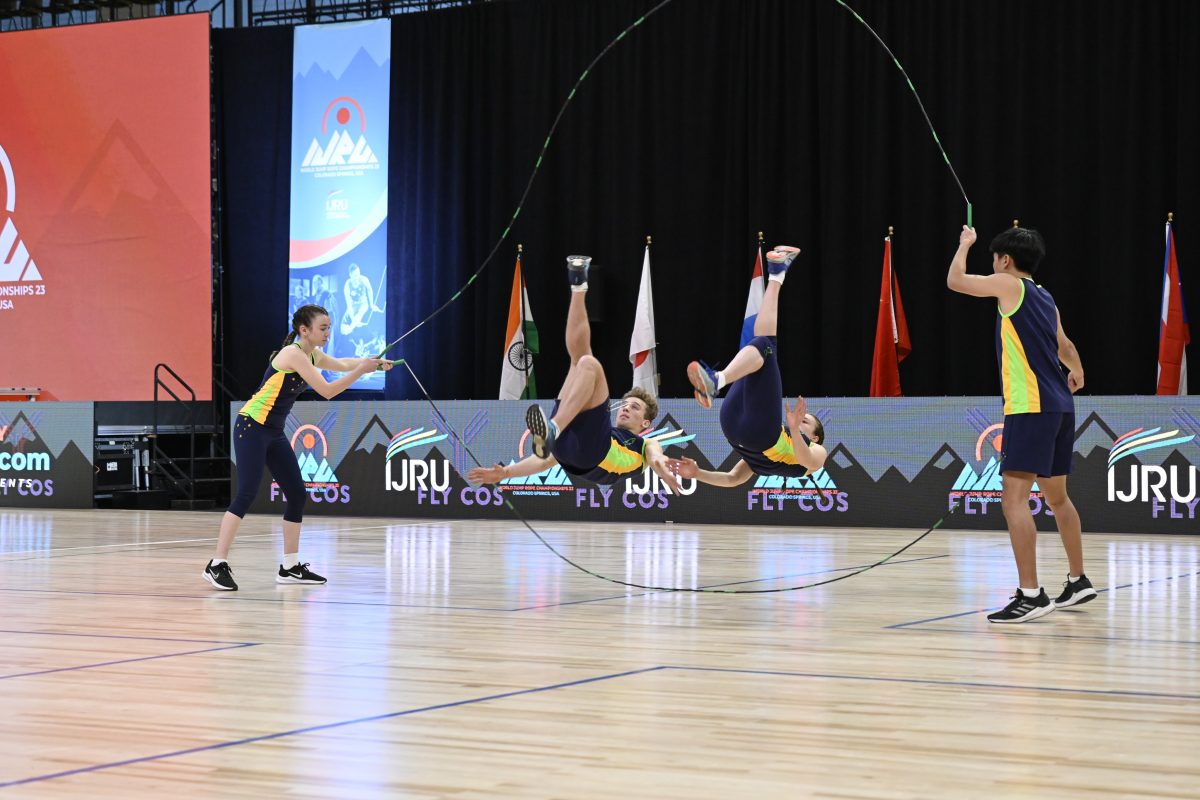
Tom and his sister won gold in the Double Dutch Freestyle Open. Photo: Supplied.
Leading into the world championship, Tom travelled between Wagga and Sydney frequently, meeting up with his team to best prepare for the competition.
“It’s all about spending time as a team and about hands on the ropes and spinning the ropes as much as possible with your team as many times a week as possible,” Tom said.
“One mistake can be the difference between finishing first or tenth, so weeding out those mistakes in practice is vital. It’s a very fine-tuned sport, if someone altered my rope by even a centimetre, I’d be able to tell, it makes all the difference.”
The early mornings, strict diet and ice baths paid off for Tom and his sister as they brought home the gold, but despite the recent success, Tom said he was hungrier than ever as the sport of jump rope prepared to potentially become an Olympic sport.
“We’re hoping to have skipping as an Olympic sport within the next four to five years,” Tom said.
“We were the first ever non-Olympic sport to be live streamed on the Olympic sporting channel, no other sports authority has had permission to do that before.
“Over 60 countries around the world compete in skipping with 30 recognising it as a national sport. In order to get it to the Olympics we need 40 countries to have their governments sign it off. We are quite confident in the next couple of years 10 more countries will jump on with hopes we can do it before the 2028 Olympics in Los Angeles or at the latest 2032 in Brisbane.”
Despite the success and the growth of the sport, Tom said the most important reason he and his family competed was to highlight the importance of looking after one’s heart.
“Not a lot of people know that 10 minutes of skipping is the equivalent of a 30-minute run when it comes to cardiovascular exercising,” Tom said.
“Cardiovascular disease (heart disease) is the number one killer in the Western world, particularly here in Australia, where we have 50 people die a day.”
Tom recently spoke to Member for Wagga Wagga Dr Joe McGirr about the importance of having programs, like those organised by the Heart Foundation, here in the Riverina.
“The Riverina is overrepresented in terms of obesity,” Tom said.
“I think it’s really important to have these programs to help overcome this scary trend.
“Skipping is really simple, really cheap and is essentially a bit of clothesline with some plastic handles; once you start the sky is the limit.”
To learn more about the Heart Foundation, click here.







